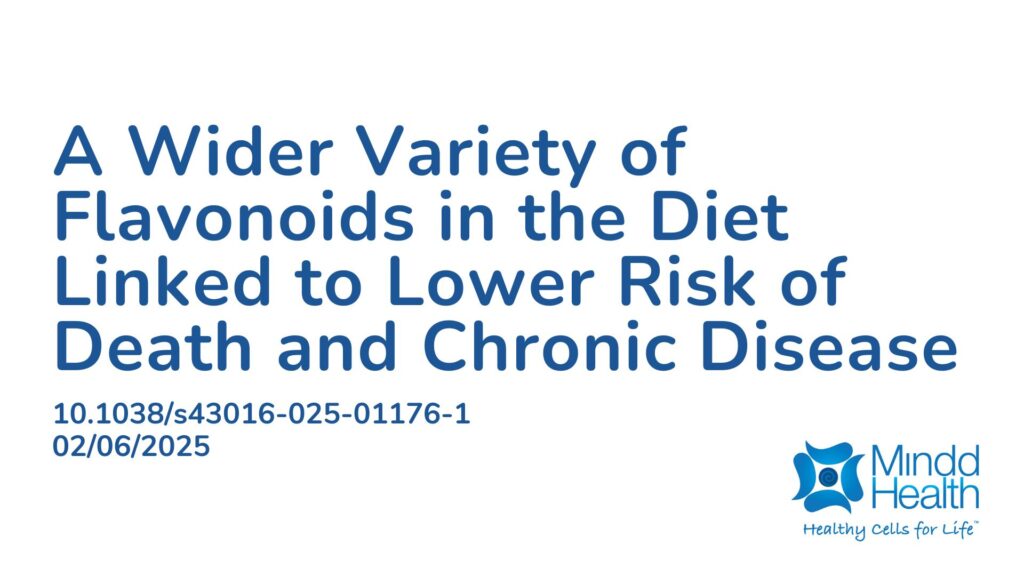Summary:
Flavonoids are natural compounds present in various foods like fruits, vegetables, nuts, legumes, wines, and teas. Once consumed, flavonoids and their metabolites potentially benefit human health by reducing the risk of diseases like cardiovascular disease, type 2 diabetes, cancer, respiratory disease, and neuro-degenerative conditions. Their biological effects include anti-inflammatory, antioxidant, and other protective actions that support overall health. Research has consistently shown that higher intake of flavonoids correlates with lower risks of mortality and major diseases. For example, flavonoids contribute to cardiovascular health by enhancing endothelial function and reducing oxidative stress. They also exhibit anti-aging effects and anti-cancer properties by preventing abnormal cell growth. This study investigated whether consuming a wide diversity of flavonoids in the diet provides greater health protection compared to consuming fewer types. Using data from 124,805 participants in the UK Biobank, the researchers analyzed the diversity of flavonoid intake and its association with mortality and the incidence of chronic diseases. The findings demonstrated that individuals with a more diverse intake of dietary flavonoids and flavonoid-rich foods had significantly lower risks (6-20%) of mortality and developing cardiovascular disease, type 2 diabetes, cancer, respiratory disease, and neurodegenerative disorders. Overall, the study showed the importance of both the quantity and diversity of flavonoid intake in promoting long-term health benefits. Consuming a variety of flavonoid-rich foods like tea, dark chocolate, berries, apples and oranges daily may effectively lower the risk of mortality and chronic diseases.
Abstract:
Higher habitual intakes of dietary flavonoids have been linked with a lower risk of all-cause mortality and major chronic disease. Yet, the contribution of diversity of flavonoid intake to health outcomes remains to be investigated. Here, using a cohort of 124,805 UK Biobank participants, we show that participants who consumed the widest diversity of dietary flavonoids, flavonoid-rich foods and/or specific flavonoid subclasses had a 6–20% significantly lower risk of all-cause mortality and incidence of cardiovascular disease, type 2 diabetes, cancer, respiratory disease and neurodegenerative disease. Furthermore, we report that both quantity and diversity of flavonoids are independent predictors of mortality and several chronic diseases, suggesting that consuming a higher quantity and wider diversity is better for longer-term health than either component alone. These findings suggest that consuming several different daily servings of flavonoid-rich foods or beverages, such as tea, berries, apples, oranges or grapes, may lower risk of all-cause mortality and chronic disease.
Article Publication Date: 02/06/2025
DOI: 10.1038/s43016-025-01176-1



